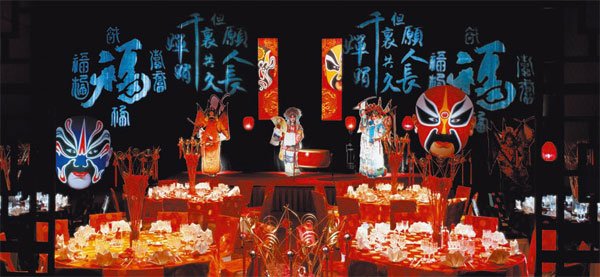Beijing plans more MICE venues
The Beijing MICE industry should develop new venues in the suburbs and offer customer-tailored services, according to Wang Yue, vice-chairwoman of the Beijing Municipal Commission of Tourism Development.
The capital city's meetings, incentives, conferences and exhibitions industry has boomed in the past decade with support from the government and constant exploration of new approaches and directions by leading industry players.
Data from the International Congress and Convention Association show that Beijing hosted 104 international conferences in 2014, ranking second in Asia and first in China. In 2005, the city hosted 61 international conferences.
Wang said the city's extensive transportation network, China's economic growth and its abundant human resources have aided the rise of Beijing's MICE industry.
By the end of 2014, Beijing had a total of 555 star-rated hotels, including 65 five-star hotels, 130 four-star and 203 three-star, according to data from the city's commission of tourism development.
Wang said that these hotels, as some of the venues for conferences, could handle the influx of international conferences to the city every year. "The only issue is how to distribute business among these hotels that are spreading over the city," she said.
Wang said the occupancy rate in some hotels in suburban areas might not be as high as those in downtown. But those hotels, with better natural environments and more tourism resources, are a better fit for conferences.
"This is where we are leading the industry - to bring more MICE business to suburban hotels and science parks. We also hope that together with these businesses, we can figure out a way to integrate local resources to offer comprehensive services to customers," Wang said.

She added that the new focus this year is to combine suburban tourism with MICE events.
Wang said the growth in the number of tourists in Beijing in the first six months of this year was slower than the growth in revenue. "We believe this is a sign that our tourism is upgrading with more MICE tourists and less individual visitors."
To further promote such upgrading, Wang said there should be more tourism products of various kinds, and new MICE venues and resources should be developed.
"MICE businesses used to gravitate to some high-end and crowded business centers. As sports, healthcare and leisure travel matures, suburban venues are more suitable for conferences on healthcare and social welfare."
Every MICE business is about the industry it is from and wants to promote, Wang said. She added that some MICE agencies are very innovative and can offer service packages tailored to different industries.
Zhang Jun, vice-president of China CYTS MICE Service, said that the challenge in offering better MICE services in the future lies in how to appeal to individual customers from a specific industry while providing standard services.
Zhang said his company is turning to big data to explore new developments.
The China Incentive Business Travel and Meetings will take place in Beijing on Aug 5 and 6. The CIBTM is a world-leading event that promotes the Asian MICE market to buyers from around the world. Beijing has been the host city of the event since it began in 2005.
Cici Chen, senior project manager of the CIBTM, said global buyers are very interested but not very familiar with the Chinese MICE market. The CIBTM, with education forums covering the latest topics in the industry and a range of interactive events, will continue to bridge the Chinese market with the global landscape of MICE businesses, she said.
fuchao@chinadaily.com.cn
|
The China World Hotel, Beijing, hosts a Peking Opera-themed banquet. Photo Provided to China Daily |
(China Daily 07/25/2015 page10)









